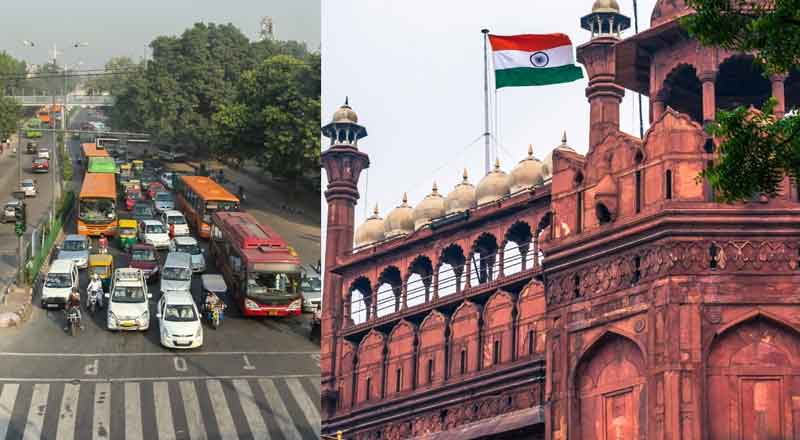The Right to Education is the fundamental right of every human being. In the words of Nelson Mandela: “Without education, your children can never really meet the challenges they will face. So, it is very important to give your children education, and explain that they should play a role for their country.” The words find deep resonance in a time when globalization is the key, competition is fierce, carrier paths are evolving and job markets are dynamic. This could find relevance in an urban scenario, but is this also the case in rural villages, for example in India?
One such initiative, which stands true to the above, is an endeavour undertaken by the Sehgal Foundation – the deputation of two busses, by Haryana Roadways, for approximately 200 girl students, aged between 14-18 years, from 17 villages to their respective schools in Nagina and Pinagwan. What is commendable about this initiative is the joint action undertaken by all stakeholders involved in order to facilitate the education of girls.
Says Sangeeta Rani, a student of class 9: “Earlier I had to wait many hours for a bus. I felt I would no longer be able to continue my education, post class 8; household chores would be my sole engagement; however, with this bus connection I am able to pursue my studies for as long as I wish to.” Adds Hemlata “I hail from a poor family. I cannot even afford to pay the bus fees. With this bus connection, I can think of studying further.” Geeta, another student, elaborates on how mischievous elements enroute to school had posed serious problems for her. She now feels safe using the bus. What is heartening about these feedbacks is the resolve not to give up; to study, be someone, to fulfil dreams and to serve as an inspiration for many others.
Another initiative is the improvement of infrastructure in schools – a vital element which contributes to a safe and healthy schooling environment.
Ajay, aged 15 years old, who studies in Rajikya Higher Secondary School, village Chula, Alwar, Rajasthan says: “The boundary wall of our school was at such a low height that external elements would enter into the school, distract the students and spoil the landscape by uprooting the plants. With help from the foundation,the wall has been scaled up; it gives a better feeling – a feeling of security.” Khamosh, another student of the same school, describes the difficulties that girl students faced earlier when there were no toilets, or no separate toilets for girls and boys. Imagine, spending around 8 hours without being able to use a secure and clean toilet. Especially for girls, during their menstrual cycles, this is a huge challenge. Amenities which most urban citizens would take for granted: like a levelled playground, a sturdy boundary wall, safe and clean toilets, proper sanitation and such, are sometimes luxuries for some children. Khushboo, aged 16 years adds eloquently: “We spend a lot of time here in the school. Hence, it is important that we enjoy the place, its energy and the feel it gives us. How can we study if these factors and basic amenities are not provided? Now with trees and flowers being planted, our school feels like a school and we are proud of it.”
Nandu, aged 17, adds “It is a blessing to have fans which operate, especially in the hot summers. The ambience has also improved. I really like the wall paintings; they are not just wall paintings, but important messages.”
Besides improvement in the ‘look and feel’ of the school, a sense of pride is something which comes naturally as an added benefit; this helps enhance self-confidence and also self-esteem. Sarita, who has been teaching computer science in the school since many years adds: “I am proud to say that my school looks really nice and beautiful. The students now have a playground where they can play. There is provision for rain water harvesting and also clean drinking water.”
Mahipal, District Coordinator, Alwar, has seen associated with Sehgal Foundation since 2001. In his long association with the foundation, he has worked in diverse fields such as food security, water management, and now is now involved in the school project.
He summarizes his journey aptly when he says: “Collaborations are vital for any project to be a success, and this is possible only when we understand each other’s limitations and strengths. Besides this, it is important to understand what the needs are, and where they lie. You see the idea of improving a school is a community effort. Everyone contributes in whatever way they can. This is also important as it gives a sense of belonging, a common cause to fight for and an objective to achieve. For students, the very journey of studying has become pleasant, serving as a motivation for them. We only hope that more and more students study, choose good careers and fulfill their dreams. That is the biggest blessing!”
Sarah Berry
Sehgal Foundation




